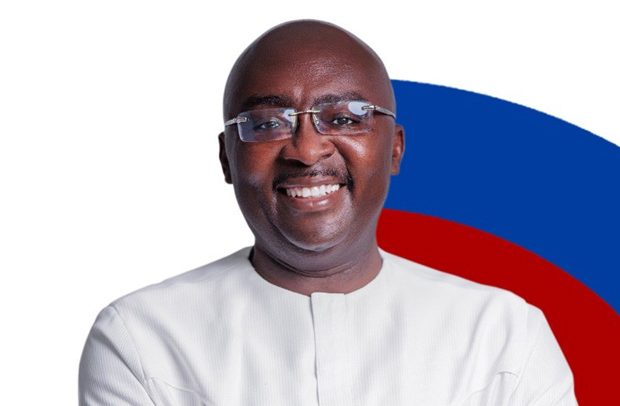Dr. Mahamudu Bawumia
Few days to the New Patriotic Party (NPP) super delegates’ conference, an opinion poll conducted by credible pollsters puts Vice President Mahamudu Bawumia ahead of other contenders.
In the special delegates-based survey conducted by Outcomes International Ghana and the Center for Sustainable African Development Initiatives (C-SADI) UK, Vice President Dr. Mahamudu Bawumia emerged the strongest front runner in the upcoming special delegates’ elections of the governing NPP.
The survey projects Dr. Bawumia to secure a significant victory with an impressive 72.6% of the votes.
The special delegates-based survey, aimed at gauging the popularity and support of various candidates within the NPP, has provided valuable insights into the upcoming internal elections.
Dr. Bawumia’s commanding lead in the survey suggests that he has garnered strong support among party delegates, positioning him as the favoured candidate to represent the NPP.
Following Dr. Bawumia in the survey is Alan Kwadwo Kyerematen, who secured 7.7% of the projected vote. Kyerematen’s support, while significantly lower than Dr. Bawumia’s, still places him ahead of other contenders in the race.
Kennedy Ohene Agyapong comes in third with 4.3% of the projected vote share, followed by Kwabena Agyepong in fourth place with 1.8%. Dr. Owusu Afryie Akoto rounds up the list in fifth place, securing a projected vote share of 0.6% with the total sum of votes for the remaining five candidates receiving 1.3% and undecided 11.7%.
Outcomes International Ghana and Centre for Sustainable African Development Initiatives (C-SADI) UK jointly conducted the survey to determine which five candidates are likely to qualify for the November 4, 2023, NPP Presidential Primaries, considering recent activities of the various candidates in the NPP Special Delegates election.
The study also looked into other socio-demographic factors that are likely to influence the outcome of the Saturday August 26, 2023 election.
For instance, how ethnicity/geography and religion affect the chances of viable candidates, as well as the basis on which delegates assess the suitability of a candidate.
The survey was conducted in all 16 regions of the country using an estimated 300 NPP special delegates as the target population of the 961 voters in the electoral college.
The study used multistage probability proportional to size sampling (PPS) with implicit stratification to reduce the operational cost of the survey and better represent the country.
The data was obtained mainly through computer-assisted telephone interviewing (CATI) technology.
Per the regional breakdown of the sample size, 11 special voters in Upper West were interviewed, in Upper East 17, also North East 15, the Northern was 19, 17 were interviewed in Savannah, Bono East 19, Bono 14, Ahafo 11, Ashanti 36, and Eastern 29. Greater Accra region had 29 people interviewed, Central 19, Western 19, Western North 15, Oti 11, and Volta region 19.
Also, with the categories of respondents interviewed, the breakdown was
Constituency Chairpersons 143, Regional Executive Member 103, Member of Parliament 33, Council of Elders 9, National Council Members 8, Card Bearing Ministers and Past National Officer 1.
The survey results reflect the current sentiments within the NPP and provide valuable insights into the potential outcome of the special delegates elections. However, it is important to note that the survey represents a projection and does not guarantee the final results.
The actual outcome will depend on the voting process and the decisions of the party delegates.
The NPP special delegates elections hold significant importance as they will determine the party’s candidate for the upcoming 2024 general elections.
The outcome will shape the party’s strategy and influence the political landscape in Ghana in the coming years.
The competition between Dr. Bawumia, Kyeremanten, Ken Agyapong, Agyepong, and Dr. Akoto is expected to intensify as they engage in campaign activities and present their plans to the party’s delegates.
By Vincent Kubi


